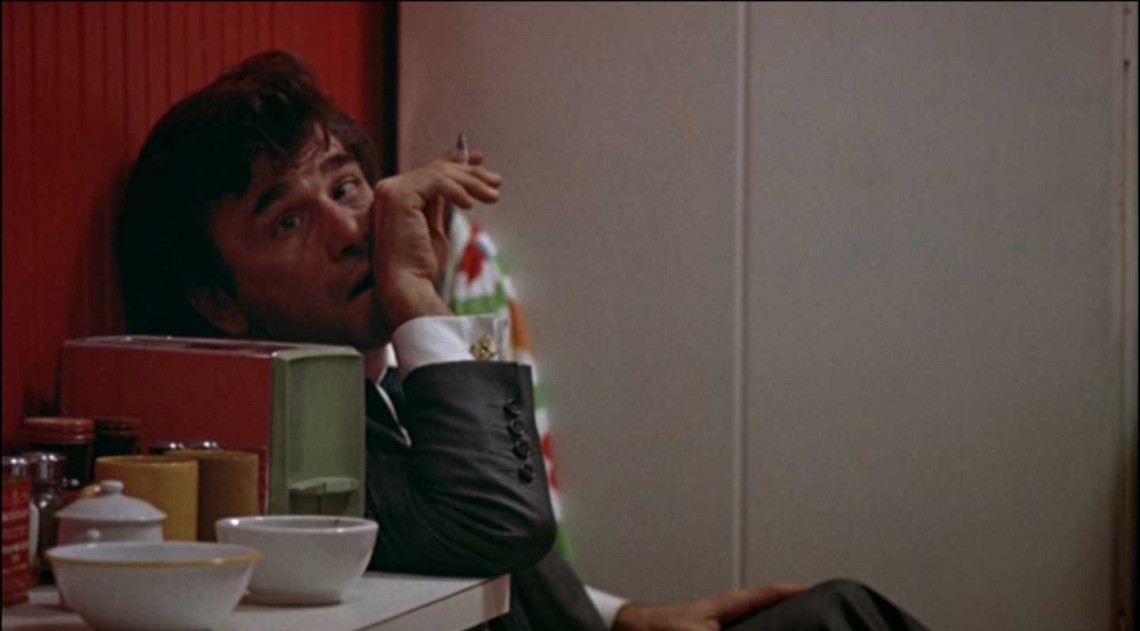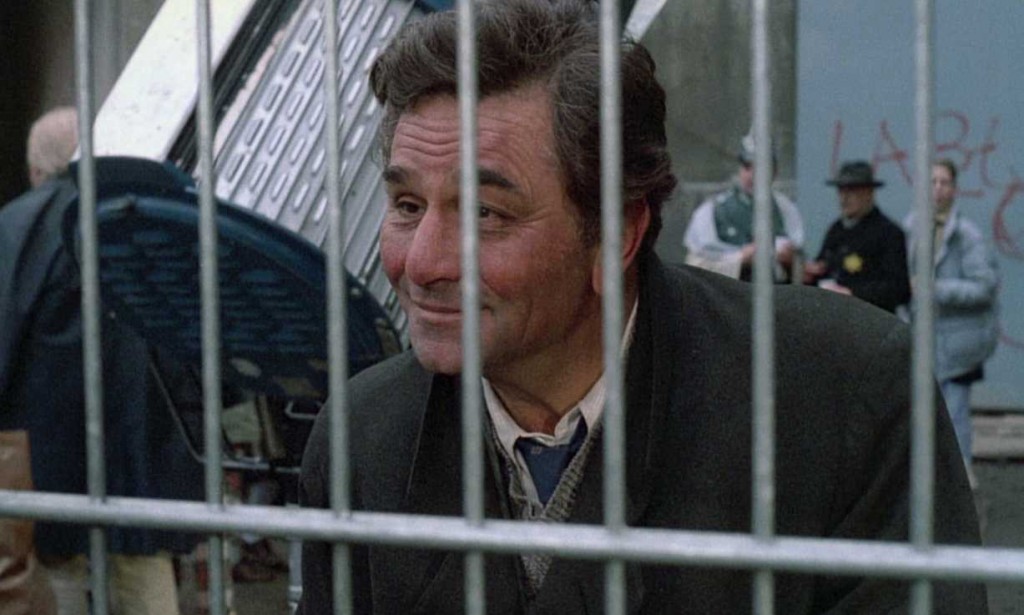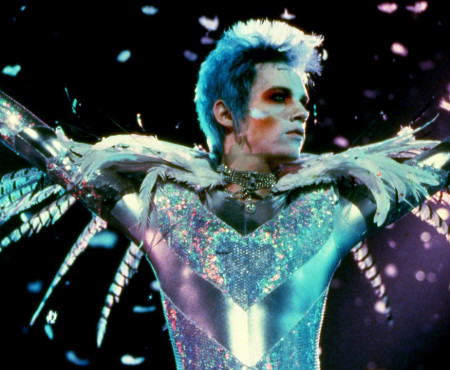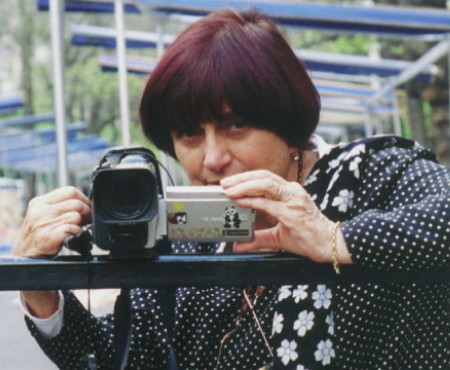Mikey and Nicky certainly resembles a New Hollywood-era feature, with its time-worn earthen colors, drab lighting, and fidgety cameras. But as with the rest of Elaine May’s criminally small filmography, the film’s sense of humor is shockingly modern. Indeed, the viciously black, ironically delivered tone could be pegged as the root for contemporary alternative comedy. Mikey and Nicky may nominally belong to the mob movies that proliferated in the wake of The Godfather, but it soon reveals itself to be a bleak parody on that genre, if not the very idea of male bonding.
John Cassavetes plays Nicky, a small-time mobster who’s pissed off the wrong guy for the last time. Holed up in a hotel room as he attempts to hide from the hit he knows is coming, Nicky is a sleep-deprived mess. His sleeves and the top of his shirt hang open like wounds, and the man is so shiny with flop sweat you sense that if he tried to button himself, everything would slide back open anyway. He frantically calls his friend, Mikey (Peter Falk) to come help him, but is so paranoid that he only gives the vaguest instructions for Mikey to find him. Mikey shows up around the hotel, and to alert his pal, Nicky wings towels filled with objects onto the street. In a moment of perfect, silent comedy, Falk bends down curiously when he spots one towel on the ground, only to snap bolt-upright a millisecond later when another towel slams to the pavement three feet in front of him. When Mikey makes his way to Nicky, he casually tells him “I got your towel” as an icebreaker.
That’s one of the few outright punchlines in the film, along with the recurring scenes of comic relief Kinney (Ned Beatty), a hilariously fastidious hitman whose frustration with New York traffic as he tries to nab his target becomes great farce. (POV shots of his car’s fuel gauge give away his anxiety over wasting a tank to track down Nicky, as if he plans to write this off on his tax returns.) Elsewhere, the humor is all but completely buried, with only a glint of satire poking up from the ground to be excavated by the two actors as they improvise around each other. Falk and Cassavetes share the same rambunctious, destructive chemistry they had in Husbands, where they (along with Ben Gazzara) drunkenly cavorted about in a globetrotting middle-age crisis. The women of that film were mostly left off-screen, but here the woman is behind the camera. And just as May’s The Heartbreak Kid at once deepened and completely subverted the male images within old partner Mike Nichols’ The Graduate, so too does this film add shades, and criticism, to Cassavetes’ filmmaking style.
Here, the focus remains on the men, in an invasive, almost vivisectional approach, the camera’s proximity a means for reading emotions in real time and poring over surfaces for weaknesses. With Falk’s mellifluous, hypnotic rasp, the well-dressed Mikey initially offsets Nicky’s spastic movements and wide-eyed nervousness with an aura of calm. He counters Nicky’s temperament with a considered tone that paints him as reasonable. Yet May subtly erects Mikey as nothing more than the flipside of Nicky’s portrait of unchecked masculine id, the equally destructive and self-centered superego that exalts itself for burying the same urges under a veneer of respectability.
Soon, Mikey reveals himself to be as capable of violence and emotional compromise as Nicky. Either he sits back when Nicky gets into scrapes, offering half-hearted words of protest, or he actively fights anyone who fails to give him the respect he feels he deserves. This comes to a head in an agonizing scene in which a sullen, jealous Mikey sulks in the background of an apartment where Nicky has momentarily set aside his shambling fear and fits of violent juvenilia to have sex with a woman (Carol Grace). Long shots isolate Mikey, but also amplify his resentment, and when he too attempts to make a move with the woman, forcing her to kiss him, she bites his lip. He explodes at her and Nicky, unloading years of pent-up sexual frustration in a verbal and physical altercation.
Cataloguing the duo like an entomologist peering at critters under a telescope, May uses the pair’s dichotomy to deliver her most blistering critique of male sociality, no mean feat for the maker of The Heartbreak Kid. By focusing on gangsters at the bottom end of the mob ladder, the film mocks their bravado and projected cool, but it uses the two men to make a larger comment on how men interpret the notion of responsibility and self-reliance. Unable to keep his own child in his life, Nicky marvels at Mikey’s stable fatherhood, but he fails to see that it is Mikey’s wife who does all the work, and who is so exhausted by the daily grind of actually raising their child that when her husband calls in a frenzy, she idly hunts for one of their son’s crayons to jot down his notes.
Films about the fierce bond of platonic male friendship litter cinema, but Mikey and Nicky suggests that such a thing is illusory, and that a quintessentially masculine drive for self-preservation will always override loyalty for one’s buddy. In fact, the only true moment of open, honest friendship between the protagonists is the most traditionally feminine. It occurs when Mikey looks at Nicky after the latter calms down from his latest antics and tenderly marvels, as if seeing them for the first time, “You got big hands! You could have been a piano player with those hands.” For one fleeting instant, Mikey sees an alternate timeline where he and Nicky dropped the macho bullshit and lived a life of genuine, mutual support instead of the toxic façade of care that is their reality.
If you’re interesting in watching Mikey and Nicky on Fandor, use your Movie Mezzanine coupon for an exclusive discount and access to a breathtaking library of cinema!





















